Op-Ed
Remove Confederate Flag Now
By Jesse L. Jackson, Sr.
NNPA Columnist
The savage act of racial terrorism at Emanuel A.M.E. Church – Mother Emanuel – in Charleston, S.C., has been met with extraordinary expressions of faith in that community. Last Thursday, the victims’ relatives offered the terrorist their forgiveness. On Sunday, Mother Emanuel’s doors opened for regular services. Hatred and violence would not break the congregation’s spirit.
The murderer, Dylann Roof, said his intent was to trigger a race war. He spat on and burned the American flag, but waved the Confederate flag. Naturally, this has revived the demand that the Confederate flag be taken down at the South Carolina state capitol. The flag is a symbol. It stands for secession, sedition, slavery, segregation and suppression of rights. That it flies at the state capitol expresses the failure to address racial division. Germany does not fly a Nazi flag. South Africa does not fly the flag of apartheid.
The flag is a symbol, but the agenda of the flag is very real. The flag agenda is to preserve states’ rights over constitutional rights, racial divide over liberty and justice for all. The flag agenda demands that states, not the federal government, establish rules around voting. When the Supreme Court’s conservative gang of five disemboweled the Voting Rights Act, a flood of measures designed to make voting harder for minorities, the poor and the elderly ensued.
The flag agenda asserts states’ rights over national reform. The Supreme Court’s conservative justices decided that states could refuse the expansion of Medicaid that was part of health care reform. Only one state of the former confederacy then accepted billions from the federal government that would expand health care for their citizens, boost their economy and aid their hospitals.
The flag agenda sustains our systemic system of criminal injustice, where African Americans are more likely to be stopped, more likely to be charged, more likely to be detained, more likely to be jailed and – as we have seen again and again – more likely to be at risk from the police that are supposed to protect them.
The flag agenda suppresses the right of workers to organize, the right to a living wage, a safe workplace, a healthy environment. The flag agenda impoverishes poor White workers by pitting them against poor Black workers.
Today, everyone is outraged at the killings, but there is not the same outrage that African Americans have the highest rates of infant mortality, unemployment, imprisonment, segregated housing and home foreclosures, segregated and underfunded public schools, poverty, heart disease, liver disease, diabetes, mental health issues, HIV/AIDS, denial of access to capital and more. The flag is a symbol, but the flag agenda is this institutionalized state of terror.
There was an urgency to identify and arrest Roof before he hurt anyone else, but there is not the same urgency to identify and arrest the current economic and political conditions – the institutional racism and structural injustices – before another generation is lost.
The flag should come down. It is deeply offensive that politicians who aspire to lead this nation as president are too cowardly to call for its removal, hiding behind states’ rights, the poisonous doctrine that is the heart of the flag agenda.
But putting the flag in a museum is not enough. Dylann Roof is 21 years old. He was not alive when Rhodesia (now Zimbabwe) existed or when South Africa was under apartheid. He was taught his hatreds; he wasn’t born with them. His hatreds found deadly expression, but so too do the institutionalized injustices that are not limited to South Carolina.
Racism requires a remedy. We need a White House conference on racial justice and urban policy to offer a vision and a policy to deal with our structural injustice. Remove the flag, of course. But we need the president and the Congress to challenge the flag agenda.
###
Activism
Oakland Post Endorses Barbara Lee
Barbara Lee will be able to unify the city around Oakland’s critical budget and financial issues, since she will walk into the mayor’s office with the support of a super majority of seven city council members — enabling her to achieve much-needed consensus on moving Oakland into a successful future.
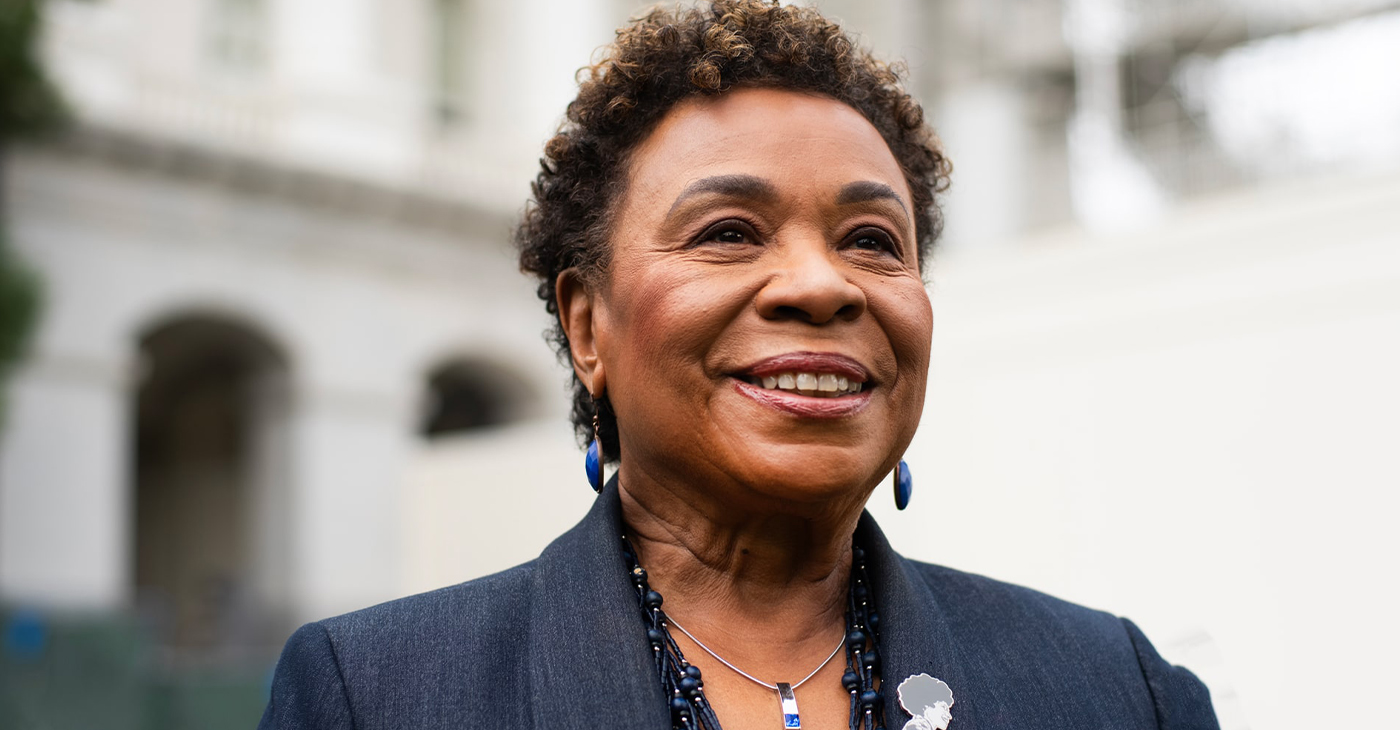
As we end the celebration of Women’s History Month in Oakland, we endorse Barbara Lee, a woman of demonstrated historical significance. In our opinion, she has the best chance of uniting the city and achieving our needs for affordable housing, public safety, and fiscal accountability.
As a former small business owner, Barbara Lee understands how to apply tools needed to revitalize Oakland’s downtown, uptown, and neighborhood businesses.
Barbara Lee will be able to unify the city around Oakland’s critical budget and financial issues, since she will walk into the mayor’s office with the support of a super majority of seven city council members — enabling her to achieve much-needed consensus on moving Oakland into a successful future.
It is notable that many of those who fought politically on both sides of the recent recall election battles have now laid down their weapons and become brothers and sisters in support of Barbara Lee. The Oakland Post is pleased to join them.
Activism
Actor, Philanthropist Blair Underwood Visits Bay Area, Kicks Off Literacy Program in ‘New Oakland’ Initiative
These community activations were coordinated with the San Francisco-based non-profit program “Room to Read.” Ray said he is also donating his time to read and take pictures with students to encourage their engagement and to inspire them to read more. The inspirational book “Clifford Ray Saves the Day” highlights Clifford Ray’s true story of saving a dolphin.
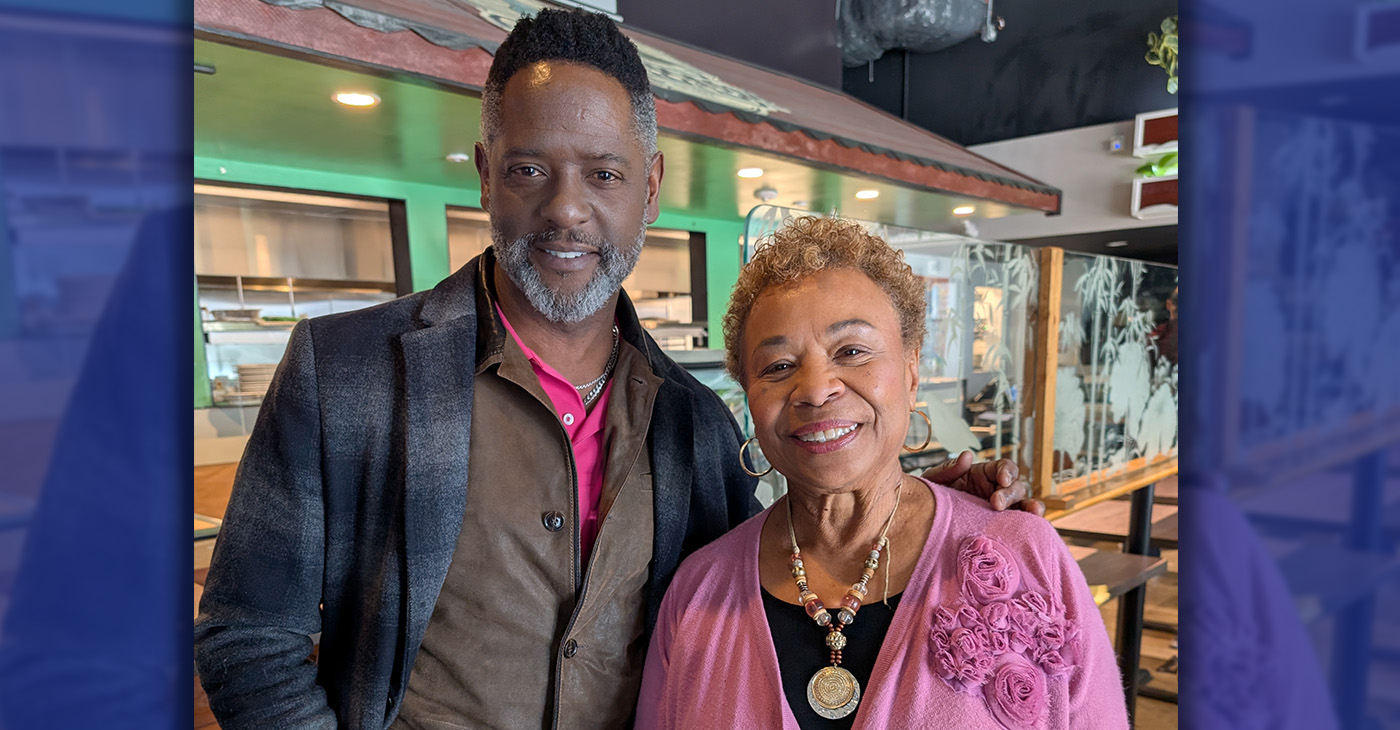
By Paul Cobb
New Oakland Series
Opinion Part 3
The Post mentioned three weeks ago that a number of our local luminaries were coming together to support the “New Oakland” movement. As this current national administration continues to eliminate our “legacy” institutional policies and programs left and right, most communities find themselves beyond “frozen” in fear.
Well, esteemed actor, long-time Bay Area supporter, and philanthropist Blair Underwood returned to Oakland this week to speak with city leaders, community trust agents, students, the Oakland Post, and local celebrities alike to continue his “New Oakland” initiative.
This week, he kicked off his “Guess Who’s Coming to Read” literacy program in some of Oakland’s middle schools. Clifford Ray, who played the center position of the 1975 World Champion Golden State Warriors, donated close to 1,000 books. Ray’s fellow teammate Charles “The Hopper” Dudley also gave Converse sneakers to students.
These community activations were coordinated with the San Francisco-based non-profit program “Room to Read.” Ray said he is also donating his time to read and take pictures with students to encourage their engagement and to inspire them to read more. The inspirational book “Clifford Ray Saves the Day” highlights Clifford Ray’s true story of saving a dolphin.
Underwood also spent quality time with the Oakland Ballers ownership group and visited the amazing Raimondi Park West Oakland community revitalization site. In the 1996 TV film Soul of the Game, Underwood played the role of the legendary first Black Major League Baseball player Jackie Robinson and commended the Ballers owners.
“This group of sports enthusiasts/ philanthropists needs to be applauded for their human capital investment and their financial capital investment,” Underwood said. “Truly putting their money and passion to work,” Underwood said.
Underwood was also inspired by mayoral candidate Barbara Lee’s open-minded invitation to bring public-private partnership opportunities to Oakland.
Underwood said he wants to “reinforce the importance of ‘collaborative activism’ among those most marginalized by non-empathic leadership. We must ‘act out’ our discomfort with passionate intentions to create healthy change.”
Activism
Councilmembers Ramachandran, Kaplan, Unger Identify Funds to Save Oakland Fire Stations
Our budget crisis – one of the worst in Oakland’s history – is compounded by the fact that people do not feel safe coming to Oakland due to our public safety crisis. By investing in our fundamental public safety resources today, we can send a signal to the world that Oakland is open for business. We have such a rich and vibrant culture, arts, and food scene that is worth celebrating – but we can only showcase this if we are able to keep our neighborhoods safe. Having fully functioning fire stations are absolutely essential to these efforts.
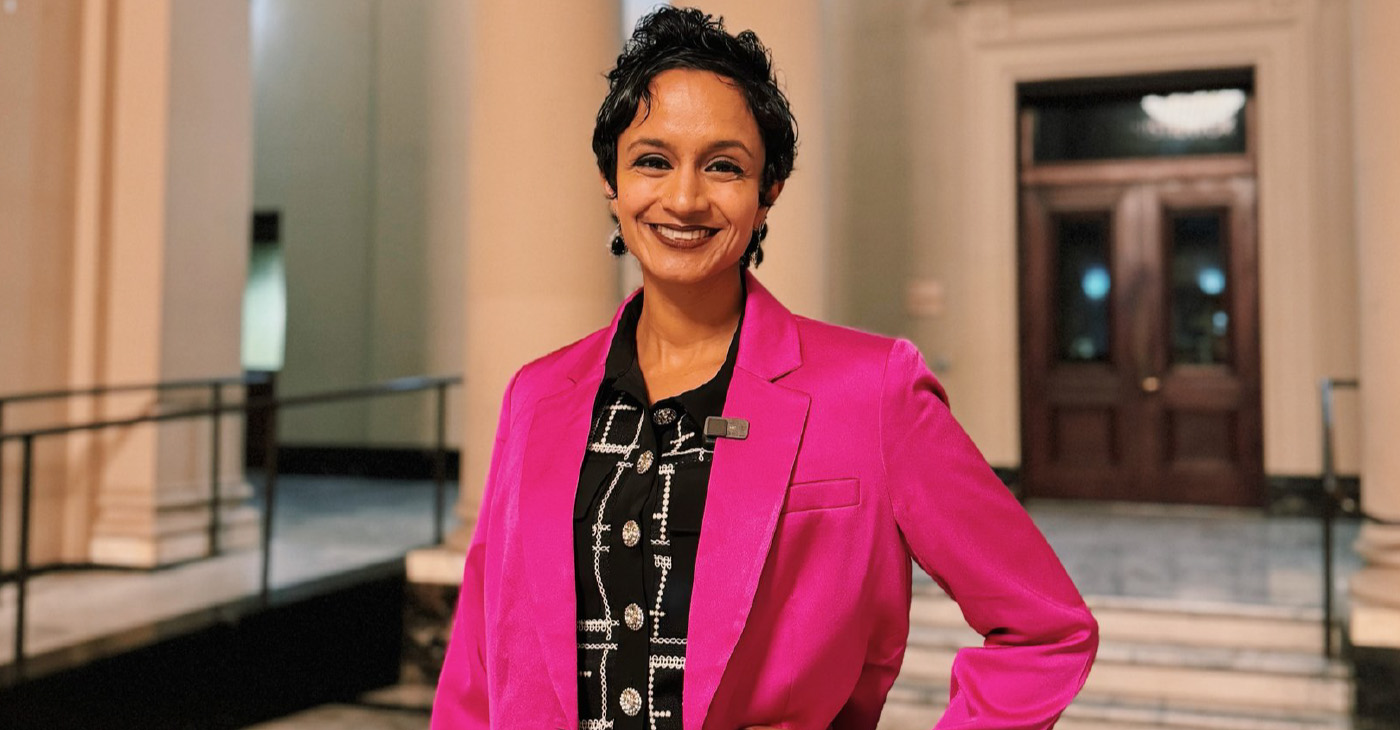
By Janani Ramachandran
There is no greater concern to the people of Oakland today than public safety. Fire stations are the bread and butter of essential city services – and every day that we have stations shuttered, we imperil the lives of our community members. In response to widespread outcry over the current and planned closure of stations, myself, along with Councilmembers Kaplan and Unger, have painstakingly worked to identify millions of dollars of new funding to save our stations. The legislation we introduced on Thursday, February 13th, will amend our budget to prevent the closure of four fire stations that are currently on the chopping block due to our budget crisis and will re-open two closed stations that have already been closed – Station 25 and 28 – in the near future. The resolution that will provide the funding to keep our stations open will go before the full City Council for a vote at our meeting on Tuesday, March 4th at 3:30 PM – and we invite you to join us at City Hall to share your perspective on the topic.
Our budget crisis – one of the worst in Oakland’s history – is compounded by the fact that people do not feel safe coming to Oakland due to our public safety crisis. By investing in our fundamental public safety resources today, we can send a signal to the world that Oakland is open for business. We have such a rich and vibrant culture, arts, and food scene that is worth celebrating – but we can only showcase this if we are able to keep our neighborhoods safe. Having fully functioning fire stations are absolutely essential to these efforts.
With the devastating Los Angeles fire at the top of people’s minds, terrible memories of Oakland’s own wildfires are re-surfacing from the 1991 Oakland Hills Firestorm to the Keller fire just a few months ago – and how essential fire stations are to mitigating these catastrophes. But in Oakland, our fire stations don’t just fight wildfires – they also provide emergency medical services to our most vulnerable constituents, put out structural fires and encampment fires, and much more.
We recognize that there are a number of competing interests and important initiatives fighting for sparse City resources. But from my perspective, core safety services are the most pivotal functions that a City must spend its resources on – especially given the outcry we have heard around fire stations.
The fight to save our stations is not over. The resolution we introduced is a critical first step, and there are hurdles to overcome. If you support keeping our fire stations open, we invite you to be a part of the solution by making your voice heard at the March 4th City Council meeting at 3:30 pm.
-

 Activism4 weeks ago
Activism4 weeks agoOakland Post Endorses Barbara Lee
-

 Activism3 weeks ago
Activism3 weeks agoOakland Post: Week of April 2 – 8, 2025
-

 #NNPA BlackPress3 weeks ago
#NNPA BlackPress3 weeks agoTrump Profits, Black America Pays the Price
-

 Activism2 weeks ago
Activism2 weeks agoOakland Post: Week of April 9 – 15, 2025
-

 #NNPA BlackPress3 weeks ago
#NNPA BlackPress3 weeks agoHarriet Tubman Scrubbed; DEI Dismantled
-

 #NNPA BlackPress3 weeks ago
#NNPA BlackPress3 weeks agoTrump Targets a Slavery Removal from the National Museum of African-American History and Culture
-

 #NNPA BlackPress3 weeks ago
#NNPA BlackPress3 weeks agoLawmakers Greenlight Reparations Study for Descendants of Enslaved Marylanders
-

 #NNPA BlackPress3 weeks ago
#NNPA BlackPress3 weeks agoNew York Stands Firm Against Trump Administration’s Order to Abandon Diversity in Schools
Op-Ed
Remove Confederate Flag Now
By Jesse L. Jackson, Sr.
NNPA Columnist
The savage act of racial terrorism at Emanuel A.M.E. Church – Mother Emanuel – in Charleston, S.C., has been met with extraordinary expressions of faith in that community. Last Thursday, the victims’ relatives offered the terrorist their forgiveness. On Sunday, Mother Emanuel’s doors opened for regular services. Hatred and violence would not break the congregation’s spirit.
The murderer, Dylann Roof, said his intent was to trigger a race war. He spat on and burned the American flag, but waved the Confederate flag. Naturally, this has revived the demand that the Confederate flag be taken down at the South Carolina state capitol. The flag is a symbol. It stands for secession, sedition, slavery, segregation and suppression of rights. That it flies at the state capitol expresses the failure to address racial division. Germany does not fly a Nazi flag. South Africa does not fly the flag of apartheid.
The flag is a symbol, but the agenda of the flag is very real. The flag agenda is to preserve states’ rights over constitutional rights, racial divide over liberty and justice for all. The flag agenda demands that states, not the federal government, establish rules around voting. When the Supreme Court’s conservative gang of five disemboweled the Voting Rights Act, a flood of measures designed to make voting harder for minorities, the poor and the elderly ensued.
The flag agenda asserts states’ rights over national reform. The Supreme Court’s conservative justices decided that states could refuse the expansion of Medicaid that was part of health care reform. Only one state of the former confederacy then accepted billions from the federal government that would expand health care for their citizens, boost their economy and aid their hospitals.
The flag agenda sustains our systemic system of criminal injustice, where African Americans are more likely to be stopped, more likely to be charged, more likely to be detained, more likely to be jailed and – as we have seen again and again – more likely to be at risk from the police that are supposed to protect them.
The flag agenda suppresses the right of workers to organize, the right to a living wage, a safe workplace, a healthy environment. The flag agenda impoverishes poor White workers by pitting them against poor Black workers.
Today, everyone is outraged at the killings, but there is not the same outrage that African Americans have the highest rates of infant mortality, unemployment, imprisonment, segregated housing and home foreclosures, segregated and underfunded public schools, poverty, heart disease, liver disease, diabetes, mental health issues, HIV/AIDS, denial of access to capital and more. The flag is a symbol, but the flag agenda is this institutionalized state of terror.
There was an urgency to identify and arrest Roof before he hurt anyone else, but there is not the same urgency to identify and arrest the current economic and political conditions – the institutional racism and structural injustices – before another generation is lost.
The flag should come down. It is deeply offensive that politicians who aspire to lead this nation as president are too cowardly to call for its removal, hiding behind states’ rights, the poisonous doctrine that is the heart of the flag agenda.
But putting the flag in a museum is not enough. Dylann Roof is 21 years old. He was not alive when Rhodesia (now Zimbabwe) existed or when South Africa was under apartheid. He was taught his hatreds; he wasn’t born with them. His hatreds found deadly expression, but so too do the institutionalized injustices that are not limited to South Carolina.
Racism requires a remedy. We need a White House conference on racial justice and urban policy to offer a vision and a policy to deal with our structural injustice. Remove the flag, of course. But we need the president and the Congress to challenge the flag agenda.
###
Activism
Oakland Post Endorses Barbara Lee
Barbara Lee will be able to unify the city around Oakland’s critical budget and financial issues, since she will walk into the mayor’s office with the support of a super majority of seven city council members — enabling her to achieve much-needed consensus on moving Oakland into a successful future.

As we end the celebration of Women’s History Month in Oakland, we endorse Barbara Lee, a woman of demonstrated historical significance. In our opinion, she has the best chance of uniting the city and achieving our needs for affordable housing, public safety, and fiscal accountability.
As a former small business owner, Barbara Lee understands how to apply tools needed to revitalize Oakland’s downtown, uptown, and neighborhood businesses.
Barbara Lee will be able to unify the city around Oakland’s critical budget and financial issues, since she will walk into the mayor’s office with the support of a super majority of seven city council members — enabling her to achieve much-needed consensus on moving Oakland into a successful future.
It is notable that many of those who fought politically on both sides of the recent recall election battles have now laid down their weapons and become brothers and sisters in support of Barbara Lee. The Oakland Post is pleased to join them.
Activism
Actor, Philanthropist Blair Underwood Visits Bay Area, Kicks Off Literacy Program in ‘New Oakland’ Initiative
These community activations were coordinated with the San Francisco-based non-profit program “Room to Read.” Ray said he is also donating his time to read and take pictures with students to encourage their engagement and to inspire them to read more. The inspirational book “Clifford Ray Saves the Day” highlights Clifford Ray’s true story of saving a dolphin.

By Paul Cobb
New Oakland Series
Opinion Part 3
The Post mentioned three weeks ago that a number of our local luminaries were coming together to support the “New Oakland” movement. As this current national administration continues to eliminate our “legacy” institutional policies and programs left and right, most communities find themselves beyond “frozen” in fear.
Well, esteemed actor, long-time Bay Area supporter, and philanthropist Blair Underwood returned to Oakland this week to speak with city leaders, community trust agents, students, the Oakland Post, and local celebrities alike to continue his “New Oakland” initiative.
This week, he kicked off his “Guess Who’s Coming to Read” literacy program in some of Oakland’s middle schools. Clifford Ray, who played the center position of the 1975 World Champion Golden State Warriors, donated close to 1,000 books. Ray’s fellow teammate Charles “The Hopper” Dudley also gave Converse sneakers to students.
These community activations were coordinated with the San Francisco-based non-profit program “Room to Read.” Ray said he is also donating his time to read and take pictures with students to encourage their engagement and to inspire them to read more. The inspirational book “Clifford Ray Saves the Day” highlights Clifford Ray’s true story of saving a dolphin.
Underwood also spent quality time with the Oakland Ballers ownership group and visited the amazing Raimondi Park West Oakland community revitalization site. In the 1996 TV film Soul of the Game, Underwood played the role of the legendary first Black Major League Baseball player Jackie Robinson and commended the Ballers owners.
“This group of sports enthusiasts/ philanthropists needs to be applauded for their human capital investment and their financial capital investment,” Underwood said. “Truly putting their money and passion to work,” Underwood said.
Underwood was also inspired by mayoral candidate Barbara Lee’s open-minded invitation to bring public-private partnership opportunities to Oakland.
Underwood said he wants to “reinforce the importance of ‘collaborative activism’ among those most marginalized by non-empathic leadership. We must ‘act out’ our discomfort with passionate intentions to create healthy change.”
Activism
Councilmembers Ramachandran, Kaplan, Unger Identify Funds to Save Oakland Fire Stations
Our budget crisis – one of the worst in Oakland’s history – is compounded by the fact that people do not feel safe coming to Oakland due to our public safety crisis. By investing in our fundamental public safety resources today, we can send a signal to the world that Oakland is open for business. We have such a rich and vibrant culture, arts, and food scene that is worth celebrating – but we can only showcase this if we are able to keep our neighborhoods safe. Having fully functioning fire stations are absolutely essential to these efforts.

By Janani Ramachandran
There is no greater concern to the people of Oakland today than public safety. Fire stations are the bread and butter of essential city services – and every day that we have stations shuttered, we imperil the lives of our community members. In response to widespread outcry over the current and planned closure of stations, myself, along with Councilmembers Kaplan and Unger, have painstakingly worked to identify millions of dollars of new funding to save our stations. The legislation we introduced on Thursday, February 13th, will amend our budget to prevent the closure of four fire stations that are currently on the chopping block due to our budget crisis and will re-open two closed stations that have already been closed – Station 25 and 28 – in the near future. The resolution that will provide the funding to keep our stations open will go before the full City Council for a vote at our meeting on Tuesday, March 4th at 3:30 PM – and we invite you to join us at City Hall to share your perspective on the topic.
Our budget crisis – one of the worst in Oakland’s history – is compounded by the fact that people do not feel safe coming to Oakland due to our public safety crisis. By investing in our fundamental public safety resources today, we can send a signal to the world that Oakland is open for business. We have such a rich and vibrant culture, arts, and food scene that is worth celebrating – but we can only showcase this if we are able to keep our neighborhoods safe. Having fully functioning fire stations are absolutely essential to these efforts.
With the devastating Los Angeles fire at the top of people’s minds, terrible memories of Oakland’s own wildfires are re-surfacing from the 1991 Oakland Hills Firestorm to the Keller fire just a few months ago – and how essential fire stations are to mitigating these catastrophes. But in Oakland, our fire stations don’t just fight wildfires – they also provide emergency medical services to our most vulnerable constituents, put out structural fires and encampment fires, and much more.
We recognize that there are a number of competing interests and important initiatives fighting for sparse City resources. But from my perspective, core safety services are the most pivotal functions that a City must spend its resources on – especially given the outcry we have heard around fire stations.
The fight to save our stations is not over. The resolution we introduced is a critical first step, and there are hurdles to overcome. If you support keeping our fire stations open, we invite you to be a part of the solution by making your voice heard at the March 4th City Council meeting at 3:30 pm.
-

 Activism4 weeks ago
Activism4 weeks agoOakland Post Endorses Barbara Lee
-

 Activism3 weeks ago
Activism3 weeks agoOakland Post: Week of April 2 – 8, 2025
-

 #NNPA BlackPress3 weeks ago
#NNPA BlackPress3 weeks agoTrump Profits, Black America Pays the Price
-

 Activism2 weeks ago
Activism2 weeks agoOakland Post: Week of April 9 – 15, 2025
-

 #NNPA BlackPress3 weeks ago
#NNPA BlackPress3 weeks agoHarriet Tubman Scrubbed; DEI Dismantled
-

 #NNPA BlackPress3 weeks ago
#NNPA BlackPress3 weeks agoTrump Targets a Slavery Removal from the National Museum of African-American History and Culture
-

 #NNPA BlackPress3 weeks ago
#NNPA BlackPress3 weeks agoLawmakers Greenlight Reparations Study for Descendants of Enslaved Marylanders
-

 #NNPA BlackPress3 weeks ago
#NNPA BlackPress3 weeks agoNew York Stands Firm Against Trump Administration’s Order to Abandon Diversity in Schools

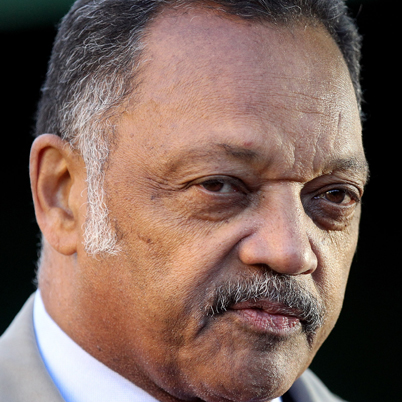




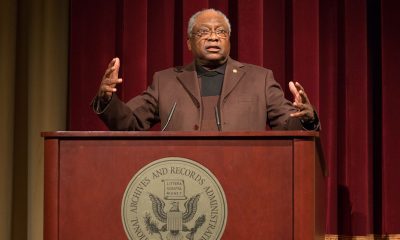

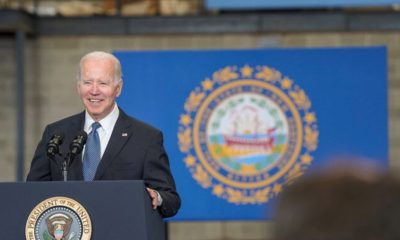

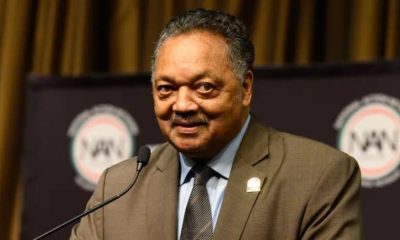

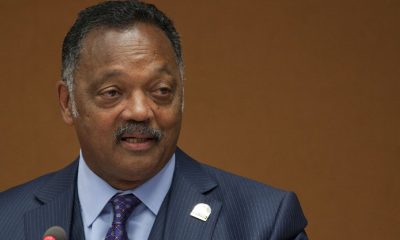














































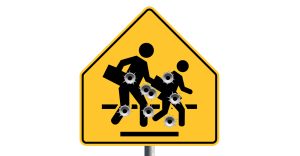

Leave a Reply